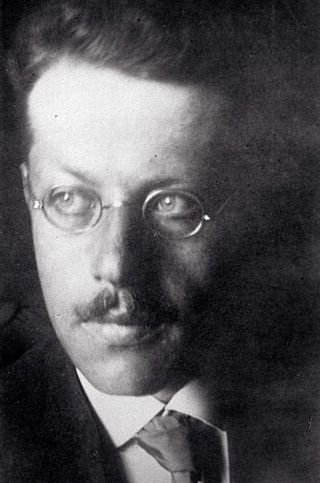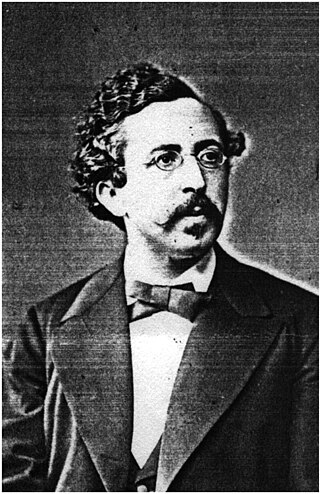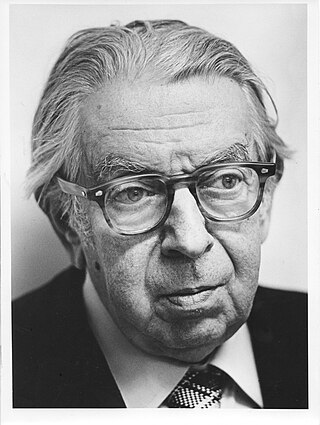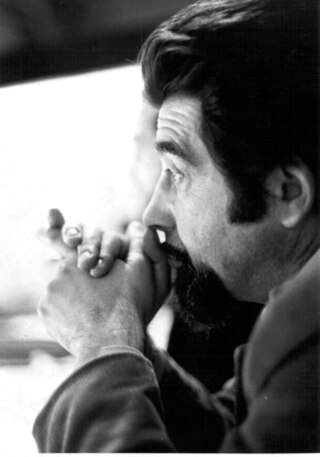Related Research Articles
Levi ben Gershon, better known by his Graecized name as Gersonides, or by his Latinized name Magister Leo Hebraeus, or in Hebrew by the abbreviation of first letters as RaLBaG, was a medieval French Jewish philosopher, Talmudist, mathematician, physician and astronomer/astrologer. He was born at Bagnols in Languedoc, France. According to Abraham Zacuto and others, he was the son of Gerson ben Solomon Catalan.

Jewish philosophy includes all philosophy carried out by Jews, or in relation to the religion of Judaism. Until modern Haskalah and Jewish emancipation, Jewish philosophy was preoccupied with attempts to reconcile coherent new ideas into the tradition of Rabbinic Judaism, thus organizing emergent ideas that are not necessarily Jewish into a uniquely Jewish scholastic framework and world-view. With their acceptance into modern society, Jews with secular educations embraced or developed entirely new philosophies to meet the demands of the world in which they now found themselves.

Franz Rosenzweig was a German theologian, philosopher, and translator.

Hans Jonas was a German-born American Jewish philosopher. From 1955 to 1976 he was the Alvin Johnson Professor of Philosophy at the New School for Social Research in New York City.

Hermann Cohen was a German Jewish philosopher, one of the founders of the Marburg school of neo-Kantianism, and he is often held to be "probably the most important Jewish philosopher of the nineteenth century".

Jonathan Henry Sacks, Baron Sacks was an English Orthodox rabbi, philosopher, theologian, and author. Sacks served as the Chief Rabbi of the United Hebrew Congregations of the Commonwealth from 1991 to 2013. As the spiritual head of the United Synagogue, the largest synagogue body in the United Kingdom, he was the Chief Rabbi of those Orthodox synagogues but was not recognized as the religious authority for the Haredi Union of Orthodox Hebrew Congregations or for the progressive movements such as Masorti, Reform, and Liberal Judaism. As Chief Rabbi, he formally carried the title of Av Beit Din (head) of the London Beth Din. At the time of his death, he was the Emeritus Chief Rabbi.
Judah David Bleich is an authority on Jewish law and ethics, including Jewish medical ethics. He is a professor of Talmud at the Rabbi Isaac Elchanan Theological Seminary, an affiliate of Yeshiva University, as well as head of its postgraduate institute for the study of Talmudic jurisprudence and family law. At Yeshiva University, he holds the Herbert and Florence Tenzer Chair in Jewish Law and Ethics. He also teaches at Cardozo Law School. He is married to Dr. Judith Bleich, a historian of 19th-century European Jewry.
Julius Guttmann, born Yitzchak Guttmann, was a German-born rabbi, Jewish theologian, and philosopher of religion.

Nahum Norbert Glatzer was an Austrian and American scholar of Jewish history and philosophy from antiquity to mid 20th century.

In Judaism, God has been conceived in a variety of ways. Traditionally, Judaism holds that the national god of the Israelites—that is, the god of Abraham, Isaac and Israel—delivered them from slavery in Egypt, and gave them the Law of Moses at Mount Sinai as described in the Torah. Jews traditionally believe in a monotheistic conception of God, characterized by both transcendence and immanence.

Arthur Green is an American scholar of Jewish mysticism and Neo-Hasidic theologian. He was a founding dean of the non-denominational rabbinical program at Hebrew College in Boston. He describes himself as an American Jew who was educated entirely by the generation of immigrant Jewish intellectuals cast up on American shores by World War II.
Eugene B. Borowitz was an American leader and philosopher in Reform Judaism, known largely for his work on Jewish theology and Jewish ethics. He also edited a Jewish journal, Sh'ma, and taught at the Hebrew Union College-Jewish Institute of Religion.

Aaron W. Hughes is an Arab-Canadian academic in the field of religious studies. He holds the Dean's Professor of the Humanities and the Philip S. Bernstein Professor of Religious Studies in the Department of Religion and Classics at the University of Rochester. He was the Gordon and Gretchen Gross Professor at the University at Buffalo, State University of New York from 2009 to 2012, and, from 2001 to 2009, professor of religious studies at the University of Calgary in Alberta, Canada.
Judaism offers a variety of views regarding the love of God, love among human beings, and love for non-human animals. Love is a central value in Jewish ethics and Jewish theology.

Steven S. Schwarzschild (1924–1989) was a rabbi, philosopher, theologian, and editor.

Menachem Kellner is an American-Israeli academic and Jewish scholar of medieval Jewish philosophy with a particular focus on the philosophy of Maimonides. He is a retired Professor of Jewish Thought at the University of Haifa and is the founding chair of the Department of Philosophy and Jewish Thought at Shalem College in Jerusalem. He has taught courses in philosophy, religious studies, medieval and modern Jewish philosophy at Washington University in St. Louis, the College of William & Mary, the University of Virginia, and the University of Haifa. He is probably best known for his book Must A Jew Believe Anything?, which was a Koret Jewish Book Award finalist.
Lenn Evan Goodman is an American Jewish philosopher. His philosophy, particularly his constructive work, draws from classical and medieval sources as well as religious texts. Goodman is also an academic, scholar, and a historian with research interest in metaphysics, ethics, and Jewish philosophy. He is serving as a professor of philosophy at Vanderbilt University.
Harold Fisch, also known as Aharon Harel-Fisch, was a British-Israeli author, literary critic, translator, and diplomat. He was a Professor of English and Comparative literature at Bar-Ilan University, of which he served as Rector from 1968 to 1971. He was awarded the Israel Prize for Literature in 2000.
Seymour Feldman is an American academic, Emeritus Professor and philosopher specializing in medieval and ancient philosophy at Rutgers University.
David Shatz is an American philosopher and Ronald P. Stanton University Professor of Philosophy at Yeshiva University. He is known for his works on philosophy of religion and ethics.
References
- 1 2 3 Berger, Shalom (10 May 2022). "Passing of Prof. Norbert Samuelson | H-Net Judaica". networks.h-net.org. H-Net: Humanities & Social Sciences Online. Retrieved 26 April 2024.
- 1 2 "50th Year Members: Norbert Samuelson". CCAR Convention 2012. Boston, MA: Central Conference of American Rabbis. 7 March 2012. Retrieved 26 April 2024.
- ↑ "The Peculiar Challenges of the Modern Sciences to Traditional Western Religious Faiths". Arizona State University. Retrieved 8 May 2011.
- 1 2 "Norbert Samuelson, Emeritus Professor: Research, Teaching, Public Work". asu.edu. Phoenix, AZ: Arizona State University . Retrieved 26 April 2024.
- 1 2 3 4 "Curriculum Vitae: Norbert M. Samuelson" (PDF). Archived from the original (PDF) on 28 July 2011. Retrieved 9 May 2011.
- ↑ "Book Review: Randall Collins' The Sociology of Philosophies, Parts I and II by Hava Tirosh-Samuelson". Metanexus Institute. 15 April 2004. Retrieved 15 May 2011.
- ↑ "Hava Tirosh-Samuelson". Arizona State University. Retrieved 11 May 2022.
- ↑ Cabot, Vicki (20 November 2009). "ASU group blends Judaism, science". Jewish News of Greater Phoenix. Retrieved 15 May 2011.
- ↑ "Towards a Jewish Theology of World Religions: An Inaugural Conference – Paper Summaries" (PDF). University of Scranton . Retrieved 15 May 2011.
- ↑ "Round Tables: Principles about the Torah in Maimonides' Foundations of Jewish Faith (8/11)". Boston University. 8 August 1998. Retrieved 15 May 2011.
- ↑ "ASU's Samuelsons urge restraint, ethics in 'transhumanist' plan to perfect people". East Valley Tribune . 14 December 2006. Archived from the original on 27 July 2011. Retrieved 15 May 2011.